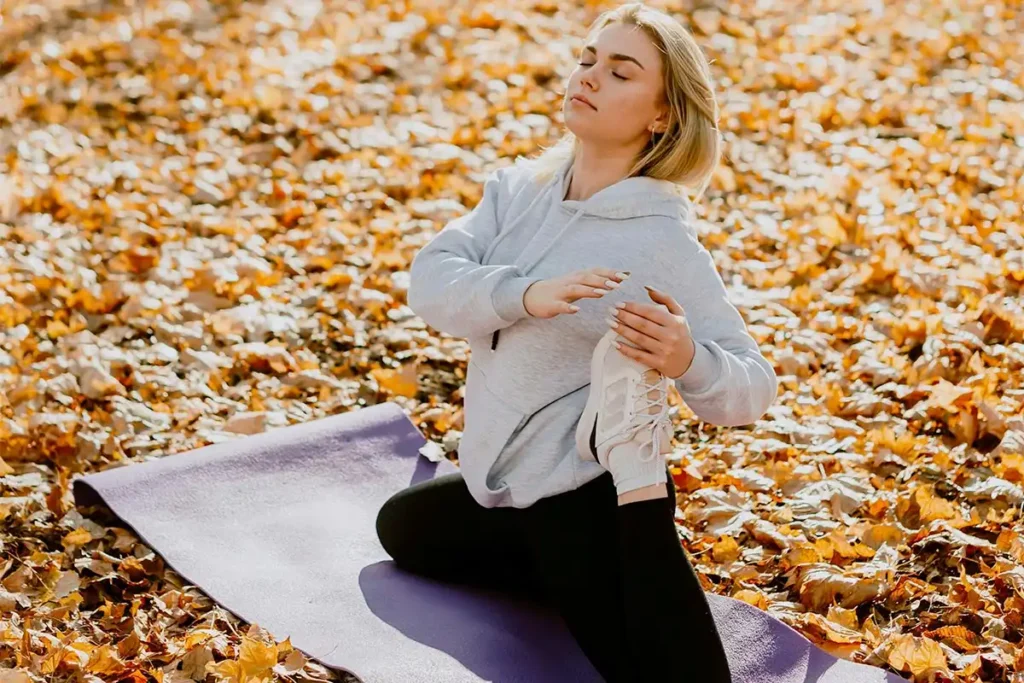Today, anxiety affects an estimated 31% of the total population – or about 1 in 3 Americans. Yet, when you look at student populations, that rate rises to 63%, with over 20% of the student population diagnosed with an anxiety disorder. College students live in a high pressure and high stress environment. With deadlines, early exams, schedules, social responsibilities, and the pressure of taking care of yourself without help for likely the first time in your life, college can be stressful and anxiety inducing.
And, that can be made even worse by people, sororities, social media, hazing, and not having your normal support groups. Going through college might mean abandoning your friends and family and being thrown into an environment where you feel pressured to succeed, without the tools to do so. Luckily, the tools are there and often you can simply reach out to your university to ask for support and help. However, the following tips should help you to deal with anxiety in college.
1. Get Therapy
Most colleges and universities have an on-campus psychiatrist or therapist and often you can sign up, get help, and be directed into a mental health treatment or care program. That often won’t be free, but it can do a lot for ensuring that you have the tools to navigate feelings of anxiety. For example, therapy can help you to uncover whether you have a chronic problem or one related to taking on too much or being in a stressful environment. It can also help you to build behavior and coping mechanisms that work for you.
Often, therapy will use a behavioral therapy approach first. If you continue having problems or trouble, you might be recommended an anti-anxiety medication. However, that will typically be after 3-6 months of therapy showing no effect.
Therapy will give you insight into what you’re doing, why you’re reacting the way you are, what tools you can use to redirect thoughts, and professional guidance on changing how you think to improve your anxiety. That can be invaluable, in college and after you graduate. Of course, it will never be a cure, but it will give you more tools to deal with anxiety.
2. Identify What Makes You Anxious
If you don’t know why you’re experiencing anxiety, you will have a much harder time doing anything about it. Here, it’s always a good idea to start keeping a journal. Writing down every instance in which you feel anxiety or anxious thoughts come up for about two weeks should give you pretty good insight into how much anxiety comes up in your daily life and where it comes up.
For example, is anxiety mostly about classes and workload? It is about people? Specific people? About not knowing people? About being criticized? About having to do homework and chores or other responsibilities? About not having any free time?
Some people have chronic anxiety, in which case there might not be a pattern. In addition, if you’re in a state of high anxiety, everything can become overwhelming and anxiety inducing.
However, in many cases, you can identify what causes anxiety. Then, you can go “I know I usually experience anxiety over this so I will look for steps to mitigate that anxiety”.
3. Exercise
If you’re the type to get anxious over having to exercise, exercising can seem like self-sabotage. But, exercise can help you to calm down, to feel good about yourself, and to balance your mood. In addition, it doesn’t have to be a lot of exercise. There’s no need to push yourself to exhaustion at the gym every day. Instead, make time for walks, look for active ways to commute, take part in sports at college, and otherwise do things that are fun and require movement.
Exercise is so effective at reducing anxiety that it’s often prescribed by therapists. That’s because it boosts serotonin and dopamine production, which help you to feel balanced and calm and good about yourself. It can also help you to feel more confident and to build self-esteem, which will reduce anxiety as well.
What are some examples? If you experience anxiety about going to class, try looking for an active way to go to class. For example, biking instead of taking the bus. If you’re struggling with anxiety about your grades or studying, try making sure you get at least 30-40 minutes of light exercise in per day and see if it helps.
Not everything will help. Exercise is a tool to reduce anxiety not to cure it. But, if you exercise frequently, it will feel good and you will feel better.
4. Eat Well
Good nutrition plays a similar role in mental health as exercise. If you don’t eat well, you deprive your body of the fuel it needs to feel good – mentally and physically. That’s so much the case that nutrient deficiencies can mimic anxiety. If you’re not eating about 80% as reccomended by myplate.gov, you could be sabotaging your mental health. That’s a relatively easy fix – especially if you can cook or can swap chores with people who can, but one that may take time.
And, good nutrition also isn’t a cure for anxiety. But, at worst, it’s a building block of emotional stability that will help you to manage anxiety in a healthy fashion.
5. Learn Stress Management
A lot of anxiety is a reaction to stress and to being in stressful situations. If you feel pressured, you will respond by feeling anxious about it. Part of managing that is to learn how to manage stress in a healthy fashion. That can include living in the moment, e.g., avoiding getting caught up in thinking about deadlines, worst case scenarios, and what could go wrong. If you’re overthinking, you’re causing yourself anxiety – and that’s something that stress management skills can help you to learn not to do.
Many colleges also have free or low-cost stress management courses that you can take. These might be about mindfulness (learning to live in the present, focused on what you are doing), they might be about time management, they might be about stress reduction – chances are, you can benefit from every option.
In addition, you can often look for therapists to help you with stress management. Counselors can also help you to improve how you deal with stress by helping you with how you respond, seeing which responses are a choice, and making better decisions for yourself.
6. Reduce Stress
Sometimes it’s not enough to learn to manage stress better, you should also take steps to reduce it. That means reviewing your daily schedule and figuring out where you’re experiencing the most stress and anxiety. For example, if a lot of stress and anxiety is about something like showing up to and functioning in that 8 AM class, dropping the class might be the way to go. If you experience a lot of anxiety about peer pressure and feeling pressured to look a certain way or to behave a certain way, deleting social media might help. If you’re being bullied or feel pressured by peers, talk to your student advisor for help.
Reducing stress means reviewing what’s causing you stress and anxiety. That might be food, cleaning, chores, study, teachers, or a number of other things. But, findings ways to minimize the stress you experience from that by reducing its impact, by taking better care of the thing, or by changing your habits will help you to reduce anxiety.
What does that mean? If you’re anxious about how you’re living, taking small steps to clean up (say for 10 minutes a day) can actually do a lot for the state of your room. If you’re anxious about your grades, asking for help and getting tutoring or joining a study group might help. If you’re anxious about your appearance, talking to a therapist can give you a better handle on that.
7. Don’t Take On Too Much
It’s very much a thing that students often take on too much. Instead of pacing yourself, you try to do everything all at once. And, the higher achieving you are, the more like you are to take on more than you can handle. If that starts to be too much, it’s important to step back and reduce your workload. That’s also true even if you’re not trying to overachieve. For example, if you’re anxious and unable to cope, it’s much better to go to your counselor and talk about options to add a year to your study so you can have a lighter workload than it is to get overwhelmed and burn out.
Pacing yourself is important and it’s important to understand that everyone has different limits and limitations. If you’re taking on too much, feel able to cut back.
8. Take Time Out
Anxiety is exhausting, takes away from your free time, and often means you’re working with less than anyone without anxiety is. It’s important to take time out. That might mean ensuring you have half a day free to relax before an exam. It might mean taking a short break from college to work on your mental health. It might also mean ensuring you have time set aside every day to relax and do nothing. In either case, make sure you have that time.
Dealing with anxiety in college can be extremely challenging. However, more than half of us struggle with anxiety at college. If that’s you, don’t be afraid to reach out, to ask for help, and to talk to your peers.
Stairway Recovery Homes has multiple sober living homes located in Los Angeles, CA. We provide community-based recovery homes for both men’s sober living and women’s sober living. Recovery IS possible!





